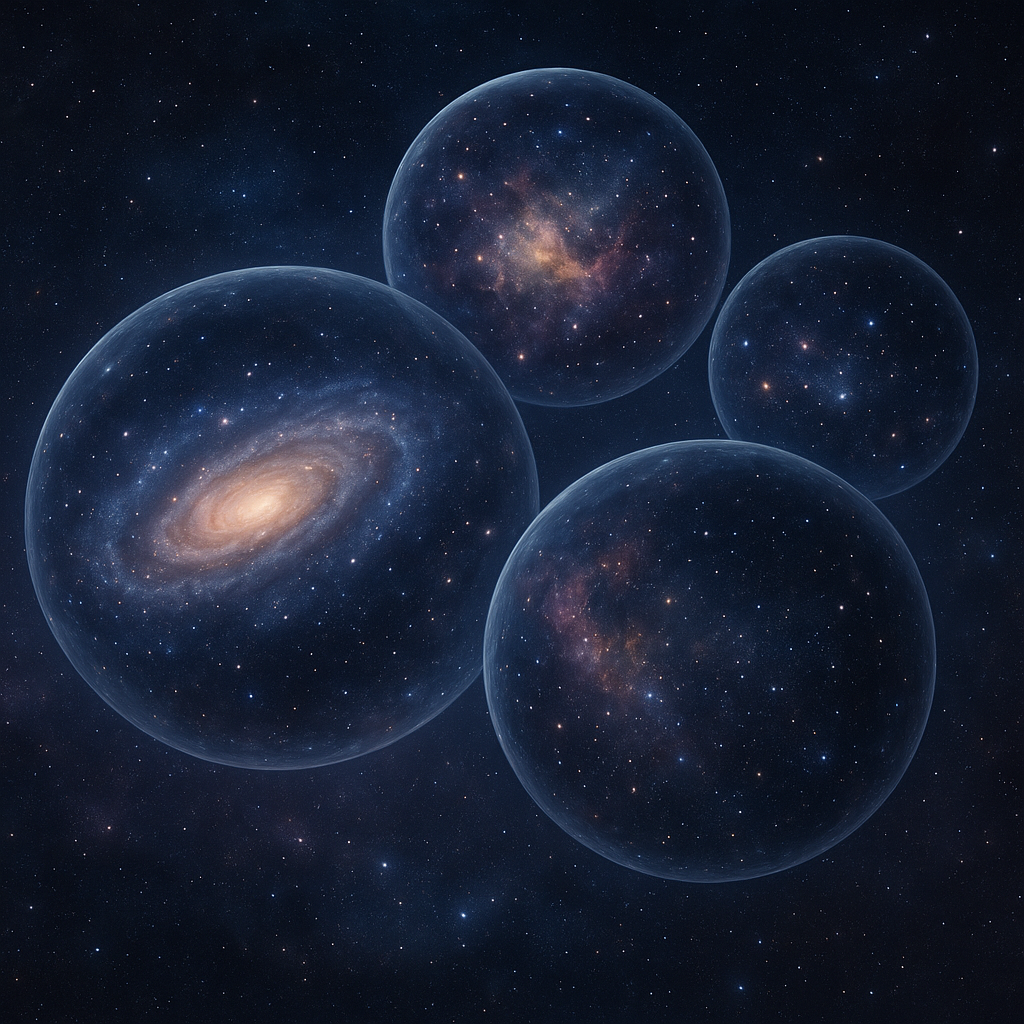Dark energy is one of the most mysterious and intriguing components of our universe, accounting for approximately 68% of the total energy density. Despite its significant presence, it remains one of the least understood phenomena in cosmology. This article delves into the enigmatic nature of dark energy, exploring what it is, how it was discovered, and why it is crucial to our understanding of the universe.
Understanding Dark Energy
Dark energy is a term used to describe the unknown force that is driving the accelerated expansion of the universe. The concept was first introduced in the late 1990s when two independent teams of astronomers, the Supernova Cosmology Project and the High-Z Supernova Search Team, discovered that distant supernovae were dimmer than expected. This observation suggested that the universe’s expansion was not slowing down due to gravity, as previously thought, but was instead accelerating.
The discovery of dark energy challenged the conventional understanding of cosmology and led to the development of new theories to explain this phenomenon. One of the leading explanations is the cosmological constant, a concept introduced by Albert Einstein in his general theory of relativity. The cosmological constant represents a constant energy density filling space homogeneously. However, other theories suggest that dark energy could be a dynamic field, similar to the inflaton field that drove cosmic inflation in the early universe.
The Role of Dark Energy in the Universe
Dark energy plays a crucial role in shaping the large-scale structure of the universe. Its repulsive force counteracts the attractive force of gravity, influencing the formation and evolution of galaxies, galaxy clusters, and the cosmic web. The presence of dark energy affects the rate at which structures grow, leading to a universe that is more diffuse and less clumpy than it would be in its absence.
Moreover, dark energy has significant implications for the ultimate fate of the universe. If the current rate of acceleration continues, the universe could end in a “Big Freeze,” where galaxies drift apart, stars burn out, and the universe becomes a cold, dark, and desolate place. Alternatively, if dark energy’s properties change over time, it could lead to a “Big Rip,” where the accelerated expansion becomes so extreme that it tears apart galaxies, stars, and even atomic structures.
Why Dark Energy Matters
Understanding dark energy is essential for a comprehensive picture of the universe’s past, present, and future. It challenges our fundamental understanding of physics and prompts the development of new theories and models. By studying dark energy, scientists hope to uncover the nature of this mysterious force and its role in the cosmic evolution.
Dark energy also has profound implications for the field of cosmology and the study of fundamental physics. It raises questions about the nature of gravity, the validity of general relativity on cosmic scales, and the potential existence of new particles or fields. Investigating dark energy could lead to groundbreaking discoveries that reshape our understanding of the universe and the laws that govern it.
Current and Future Research
Researchers are employing various methods to study dark energy, including observations of the cosmic microwave background, large-scale galaxy surveys, and gravitational lensing. These techniques aim to measure the expansion rate of the universe and the growth of cosmic structures with high precision, providing insights into the properties of dark energy.
Future missions, such as the European Space Agency’s Euclid satellite and NASA’s Nancy Grace Roman Space Telescope, are designed to probe dark energy with unprecedented accuracy. These missions will map the distribution of galaxies and measure the effects of dark energy on the universe’s expansion, offering valuable data to test competing theories and refine our understanding of this enigmatic force.
In conclusion, dark energy remains one of the most compelling mysteries in modern cosmology. Its discovery has revolutionized our understanding of the universe and opened new avenues of research in fundamental physics. As scientists continue to explore this enigmatic force, they hope to unravel its secrets and gain deeper insights into the nature of the cosmos.










